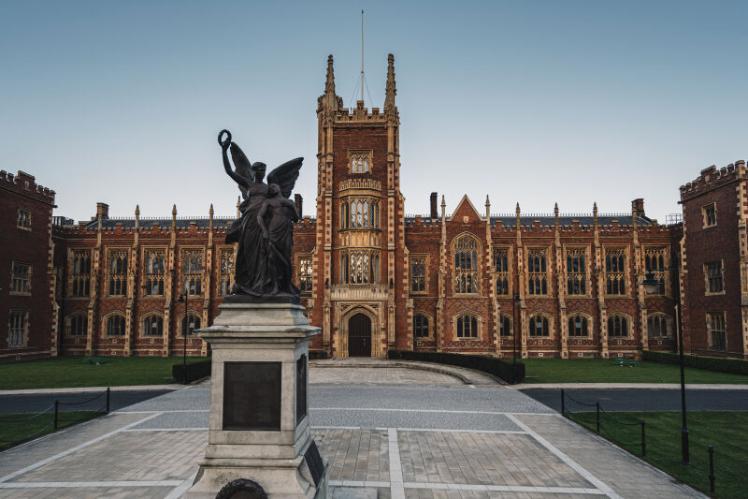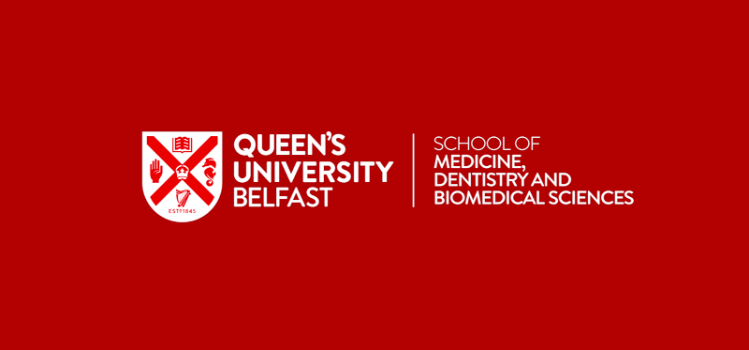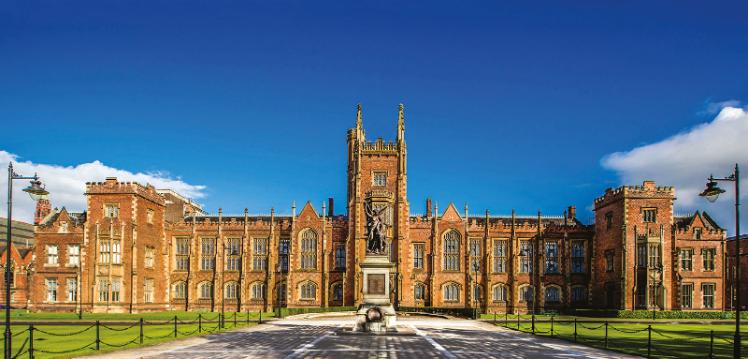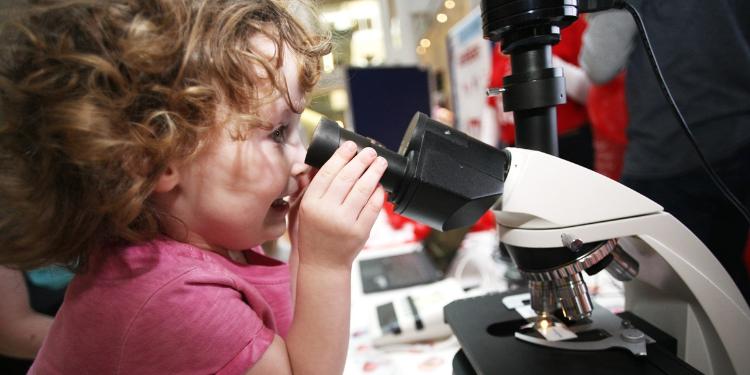News
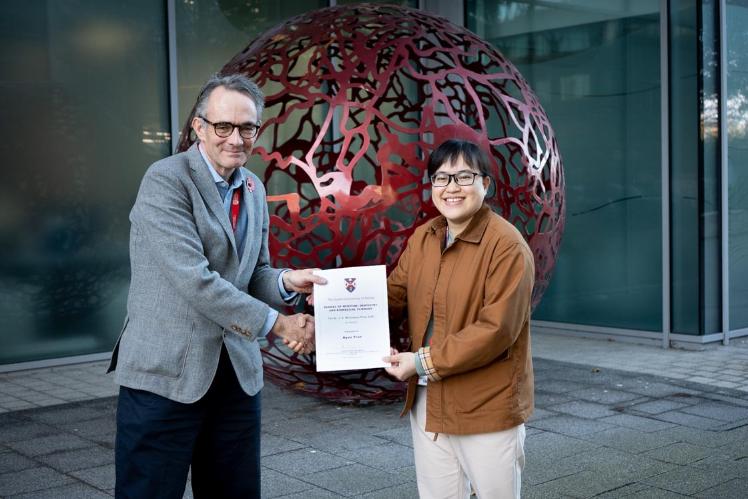
We’re delighted to announce that Ngan Tran has been awarded the 2025 JD Williamson Prize.

Staff across the School of Medicine, Dentistry and Biomedical Sciences have been recognised with multiple awards at the 2025 Queen's University Belfast Teaching Awards.
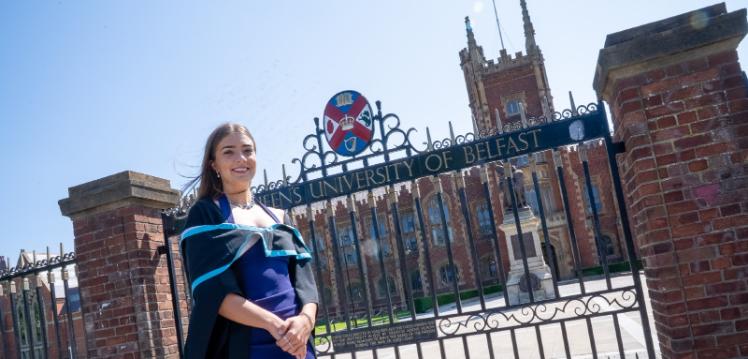
Jenna McCarlie is graduating today with a degree in Dentistry, having balanced her studies with captaining Queen’s hockey team to their most successful season and representing Ireland internationally.

Mhairi Cowan is graduating today with a degree in Medicine from Queen’s, having championed planetary health throughout her studies by helping to embed climate-conscious thinking into medical education and advocating for sustainability in healthcare.

Professor Alan Smyth from Queen’s University has been awarded ‘Outstanding Clinical Researcher’ at the Cystic Fibrosis Trust 60th Anniversary Awards
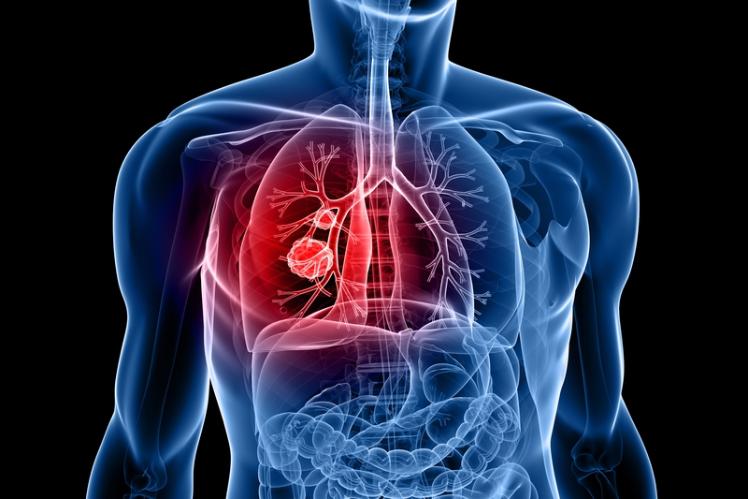
Queen's University Belfast has secured a significant grant to lead a groundbreaking project aimed at establishing lung cancer screening programmes across the island of Ireland.
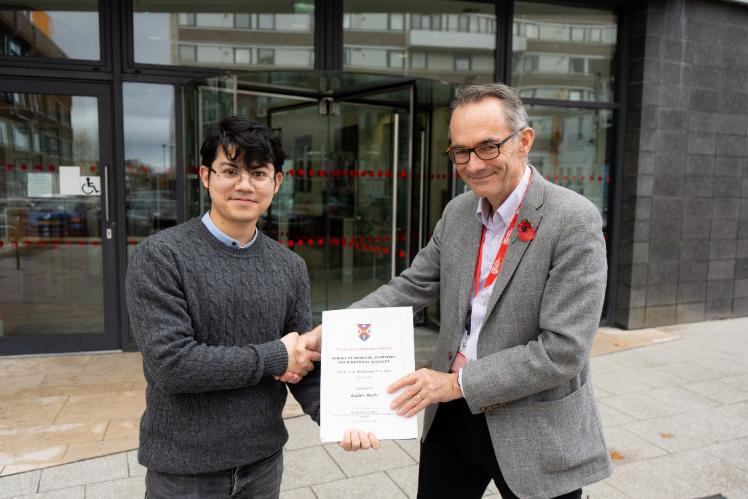
The School of Medicine, Dentistry and Biomedical Sciences is delighted to announce Sudhir Malla as the recipient of the 2024 JD Williamson Prize.

Researchers from Queen’s University, the University of Dhaka, the International Agency for Research on Cancer, and the British Geological Survey are combining their expertise to further develop a urine-based early detection test for bladder cancer.

Ireland's Minister for Health, Stephen Donnelly, has appointed Professor Mark Lawler as a new Board Member at the Health Research Board (HRB).
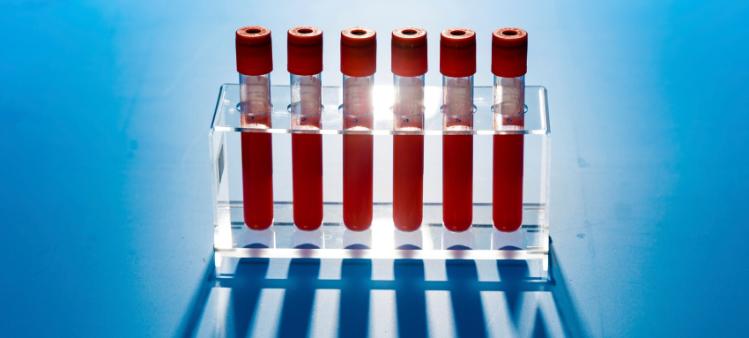
A major breakthrough in the fight against sepsis, one of the UK's most deadly health threats, has been announced today.

A new study published today highlights that many of the current 20 million cancer survivors across Europe are being discriminated against in accessing financial services, including loans, mortgages, health and travel insurance.
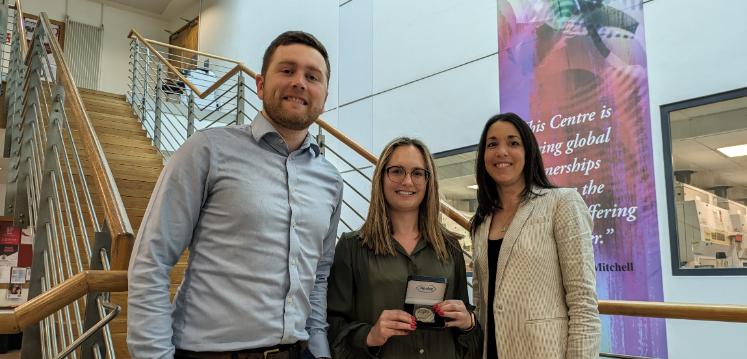
Postdoctoral Research fellow Dr Natalie Fisher has been awarded the prestigious Roche Researcher of the Year Award.
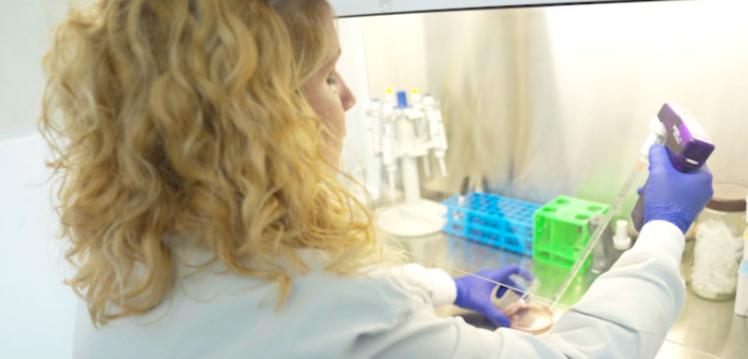
In a groundbreaking discovery, a team of researchers from Queen’s University has successfully grown a mini version of human blood vessels from people with diabetes.
-750x359.jpg)
Professor Charuhas V. Thakar from Queen’s University Belfast has been awarded the prestigious American Society of Nephrology 2024 Distinguished Leader Award.

The largest of its kind, this study tracked the blood test results of over 3,500 participants for a span of 17 years.
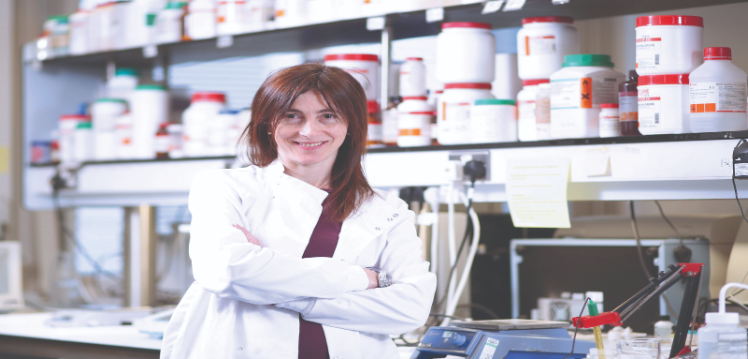
Professor of Ophthalmology at Queen’s University Belfast, Noemi Lois, has been honoured with The Royal College of Surgeons of Edinburgh King James IV Professorship.
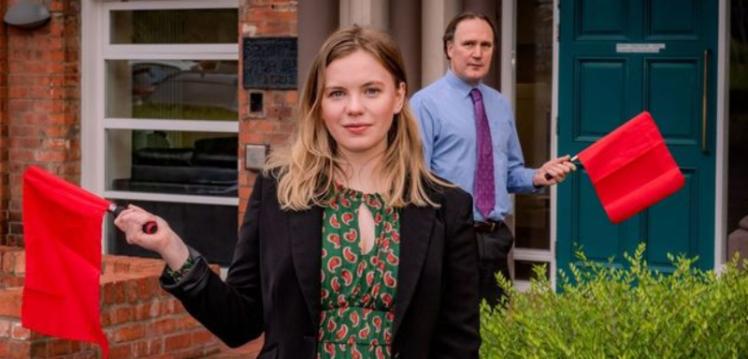
A new report by the Northern Ireland Cancer Registry (NICR) at Queen’s has found red flag referral or screening routes provided patients with earlier cancer diagnosis & have been shown to provide better survival rates for people in Northern Ireland.

The Queen’s University Northern Ireland Cancer Registry (NICR) today (Tuesday 21 May) released the official statistics on cancer diagnosed in Northern Ireland during 1993-2021.
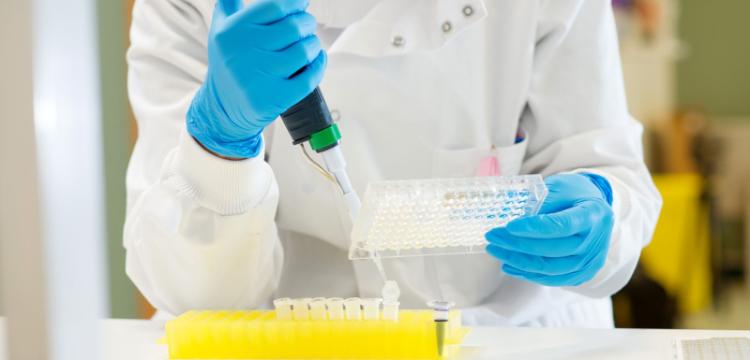
A new “rising stars’ fellowships programme, co-led by Health Data Research UK (HDR UK) and Queen’s University Belfast, will enable six talented early career researchers to accelerate their careers for a future in health data science.

Today, Conor Murphy, Minister for the Economy, Northern Ireland and Dara Calleary, Minister of State for Trade Promotion, Digital and Company Regulation in Ireland will jointly launch the All-Island Oncology Industry Report.

Researchers from Queen’s University Belfast have created a new £12M research centre to improve clinical trials for rare diseases.

An innovative new EU research project called I-SCREEN will help with early detection of age-related macular degeneration (AMD), the most common cause of severe vision loss in individuals aged 55.

Microbiologists at Queen’s University have made a breakthrough in bacteria research which could lead to increased effectiveness of currently available antibiotics, helping in the global fight against antibiotic resistance.

Researchers from Queen’s University have developed a new toolkit that harnesses the power of ‘Big Data’ for digital health with the aim of driving improvements in patient care and outcomes through data-driven innovation.

New research led by Queen’s University Belfast has identified that the gene Spic plays a central role in regulating stem cell identity during early embryonic development.
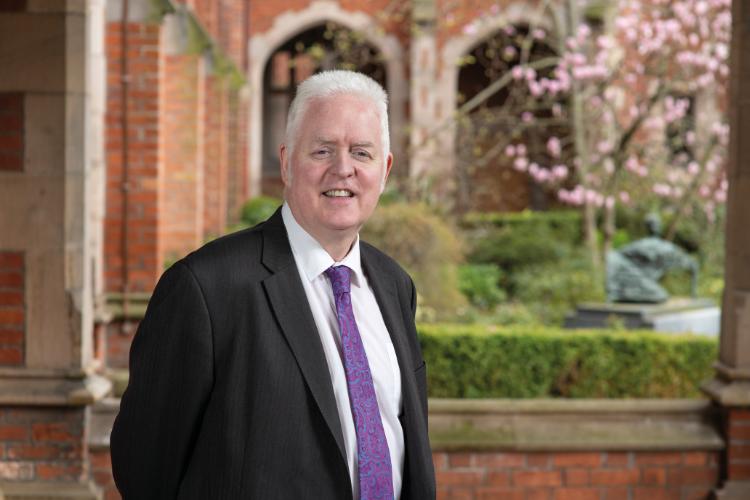
Professor Mark Lawler from Queen’s will co-direct The Big Data for Complex Disease (BDCD) Programme which aims to exploit the power of big data to diagnose and treat two of the biggest global health challenges - cancer and cardiovascular diseases.
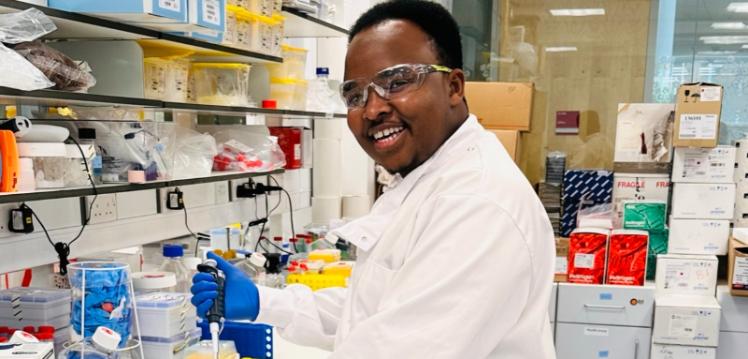
Ashraf Mahmoud from Tanzania has joined the Wellcome-Wolfson Institute for Experimental Medicine (WWIEM) at Queen’s University Belfast as part of the Institute’s iEngage summer research programme.

A new collaboration has transformed healthcare in Northern Ireland by providing a more precise and faster diagnosis service, as well as better treatment options for people with cancer.

A landmark study led by Queen’s University Belfast has shown how precision medicine can be a cheaper and more efficient way to treat cancer.

Eimear O'Rourke has been announced as the 2023 Allstate NI Queen’s Student of the Year, joining a prestigious list of Queen’s University students who have been similarly recognised for their outstanding achievements

A trio of medical students who are due to pick up their degrees today say one of their best achievements from their time at Queen’s was making their mark with K-pop.

Shea O’Brien will graduate today with a Bachelor of Science degree in Medicine from the School of Medicine, Dentistry and Biomedical Sciences at Queen’s University Belfast.

Dr Brian Cheung, a successful business professional and philanthropist, will be awarded an Honorary degree at Queen’s today, almost 40 years after his first Queen’s graduation.
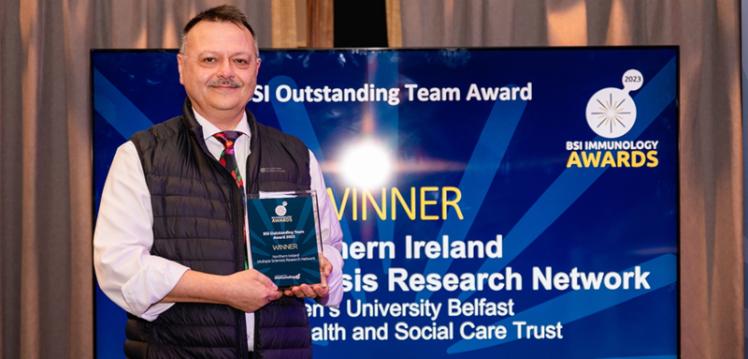
The Northern Ireland Multiple Sclerosis Research Network (NIMSRN) at Queen's University Belfast has won the British Society for Immunology (BSI) Outstanding Team Award for 2023.

Professor Frank Kee, the Director of the Centre for Public Health in the School of Medicine, Dentistry and Biomedical Sciences at Queen’s University has been elected to The Academy of Medical Sciences’ prestigious Fellowship.
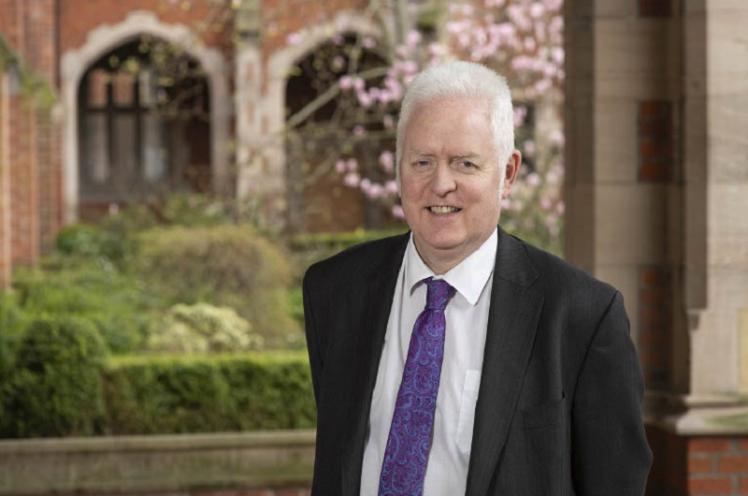
This award by nine of the largest government and charity funders in the UK to Health Data Research UK (HDR UK), of which Queen’s is a vital member, will accelerate the trustworthy use of data to enhance diagnosis, improve treatment and save lives.
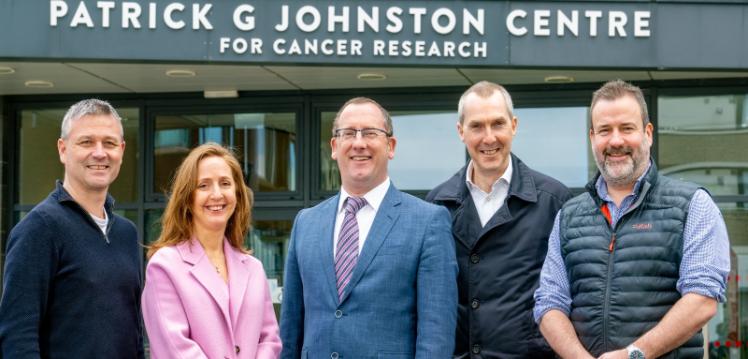
Queen’s University Belfast has announced its 100th spin-out company - AilseVax - with seed funding of £1.5M from a group of investors.
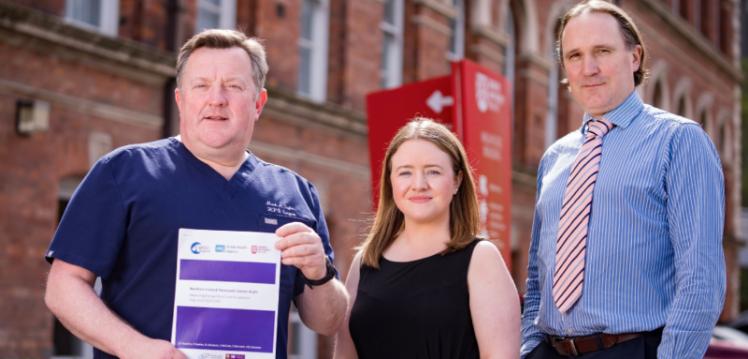
The first audit in over ten years into pancreatic cancer in Northern Ireland has revealed there has been an 86% increase in confirmed cases, rising from 152 in 2001 to 283 in 2020 since a previous audit was carried out in 2001.
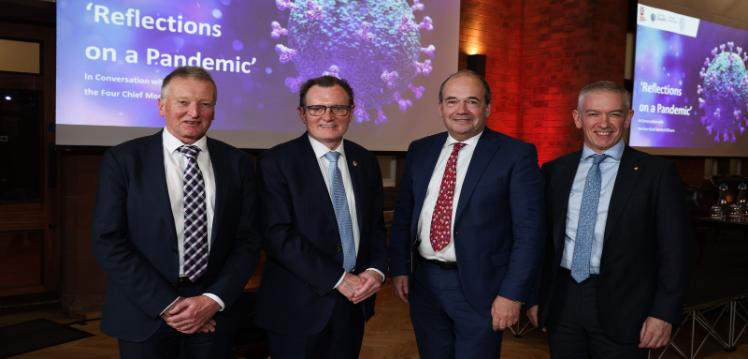
Queen’s University Belfast hosted a 'Reflections on a Pandemic’ In Conversation event with members of the Chief and Deputy Chief Medical Officer teams from across Northern Ireland, Scotland, Wales and England.
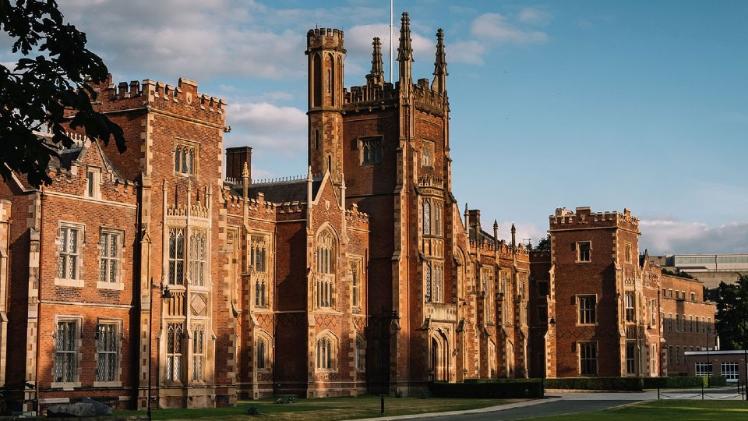
The Queen’s University N. Ireland Cancer Registry (NICR) today (Wednesday 14 December) released the official statistics on breast, colorectal, oesophageal, stomach and head & neck cancer incidence and survival rates for Northern Ireland 1993 - 2020.

Researchers at Queen’s University Belfast and the Erasmus Medical Center in Rotterdam have revealed how a particular gene called USP7 is involved in cancer.

The NICOLA study, led by researchers at Queen’s University, has played a key role in providing data as part of an international study on the link between age-related macular degeneration (AMD) and lipid lowering and antidiabetic drugs.
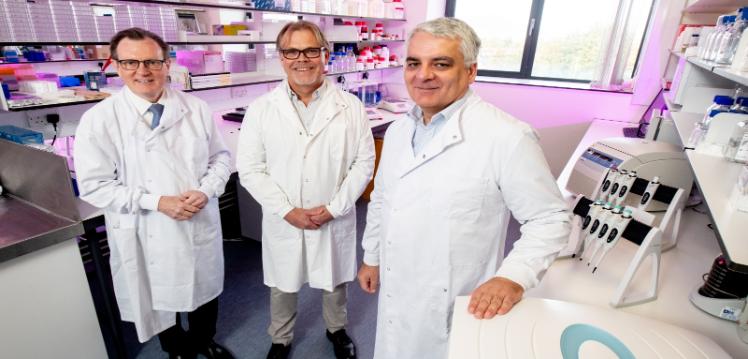
Drug development company, CV6 Therapeutics, is investing almost £8m in first-stage clinical trials and further scientific development work on its first anti-cancer drug CV6-168.
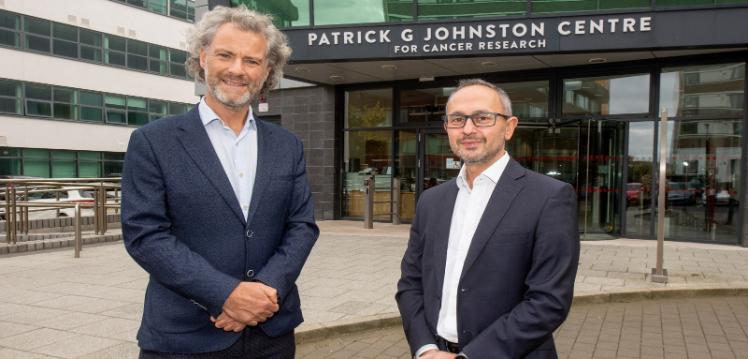
A new Prostate Cancer Centre of Excellence is set to open at Queen’s University Belfast, thanks to a generous £1.6million gift to establish a clinical research facility at the Patrick G. Johnston Centre for Cancer Research.
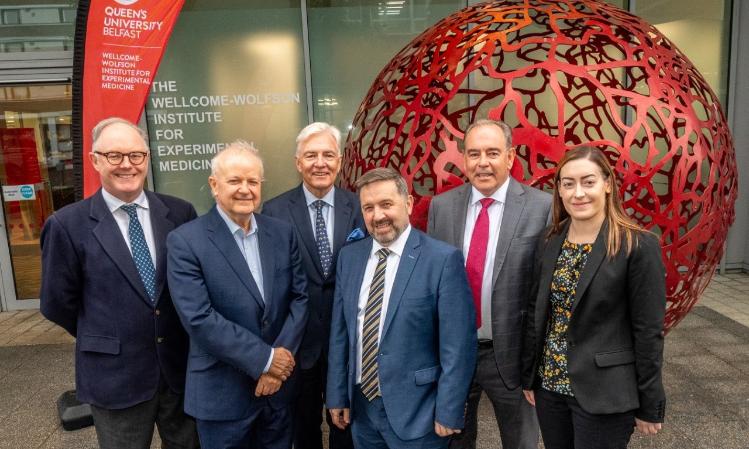
Health Minister Robin Swann today launched the All-Island Congenital Heart Disease (CHD) Network Research Programme.

Researchers at Queen’s University Belfast have revealed how the pathway of an identified protein could lead to early diagnosis and targeted treatment for several cancers and brain disorders.
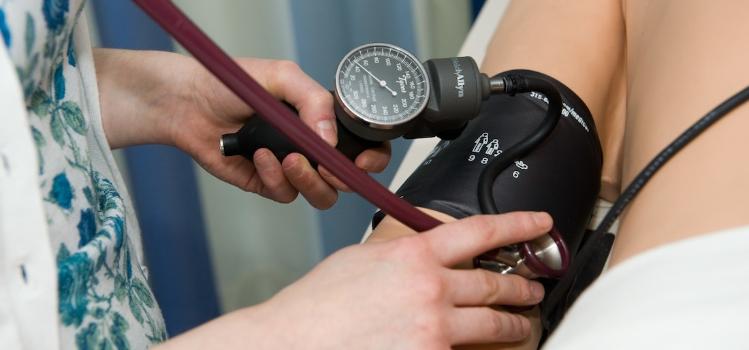
Academics from Queen’s have taken part in a study analysing the impact of physiology education on the UK economy.

The Queen’s University N. Ireland Cancer Registry (NICR) today (Thursday 26 May) released the official Statistics on urinary, gynaecological, hepatobiliary and pancreatic cancer incidence and survival rates for Northern Ireland 1993 - 2020.

Trauma experts from Queen’s University are working with clinicians in Ukraine and Poland who are supporting people experiencing PTSD due to war.

A major success of the UK’s COVID-19 response has been the use of up-to-date, publicly available data - now this approach must be widened to tackle the indirect and long-term effects of the pandemic, according to a new study by Queen's.
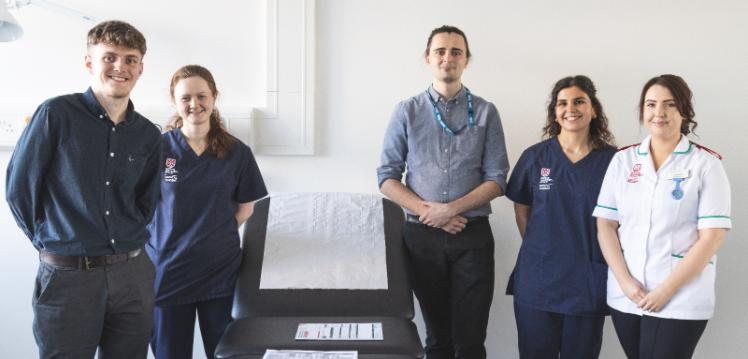
Queen’s University Belfast has been crowned the winner of the All-Ireland Interprofessional Healthcare Challenge for Students 2022.
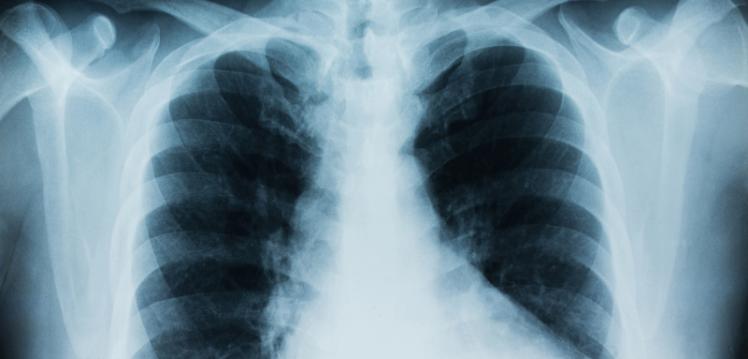
Official Statistics on lung cancers diagnosed in Northern Ireland during 1993-2020 were published on 15 March 2022 at 9:30am. This release provides details of the number of lung cancer cases diagnosed each year along with incidence rates over time
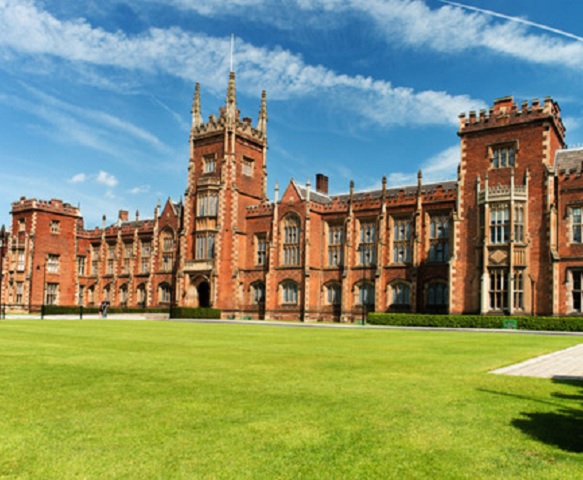
Researchers at Queen’s University Belfast are set to collaborate with institutions across Northern Ireland and the Republic of Ireland following a major funding boost from the Irish Government.
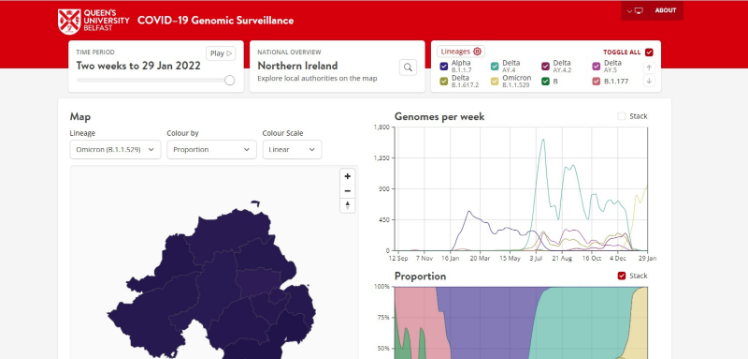
A new public resource, developed by Queen’s University Belfast and the Public Health Agency (PHA), has been launched today.

Queen’s University Belfast will lead a new £1.6m collaborative project to rapidly identify new treatments for COVID-19.

Scientists from Queen’s University Belfast, the University of Aberdeen and NHS Grampian have found that antibiotic use may increase the risk of developing colon cancer, potentially more so among younger people.

A defective gene, normally found in blood cancers, could be treated with drugs already available for cancers with similar gene defects, scientists at Queen’s University Belfast and the University of Birmingham have revealed.
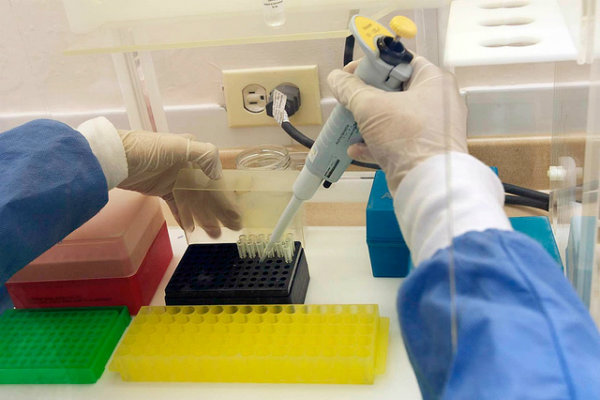
Queen’s University of Belfast and the global biopharmaceutical company Ipsen have entered a collaboration and licensing agreement relating to Queen’s cutting-edge preclinical stage first-in-class FLIP inhibitor programme.

As part of the ‘Time To Act’ campaign, the European Cancer Organisation is launching its Data Navigator, making key data on the impact of Covid-19 on cancer available across European countries.
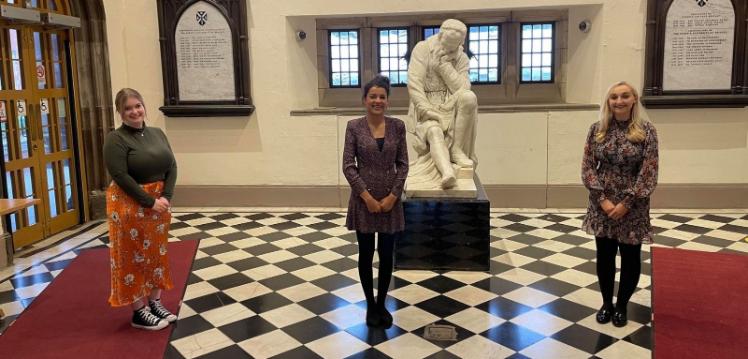
Mind Matters has won the PsychSoc or Student Psychiatry Society of the Year Award at the 2021 Royal College of Psychiatrists (RCPsych) Awards, which are held annually to recognise excellence within psychiatry.

New research led by Queen’s University Belfast indicates that urgent action is required to reduce the number of road traffic accidents which can be attributed to poor vision.
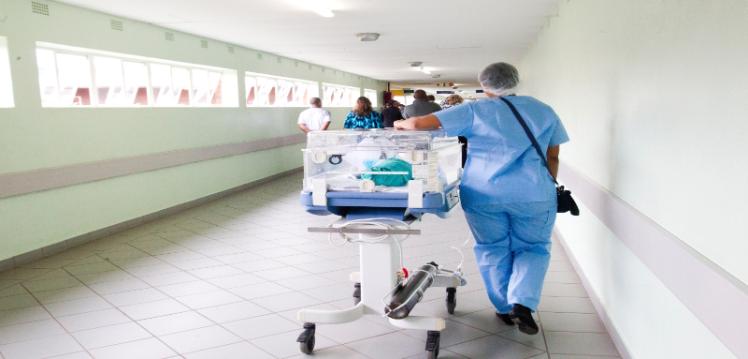
A major UK clinical trial led by Queen’s University Belfast has shown how a new approach to reduce the use of mechanical ventilation can greatly improve outcomes for critically ill infants and children.
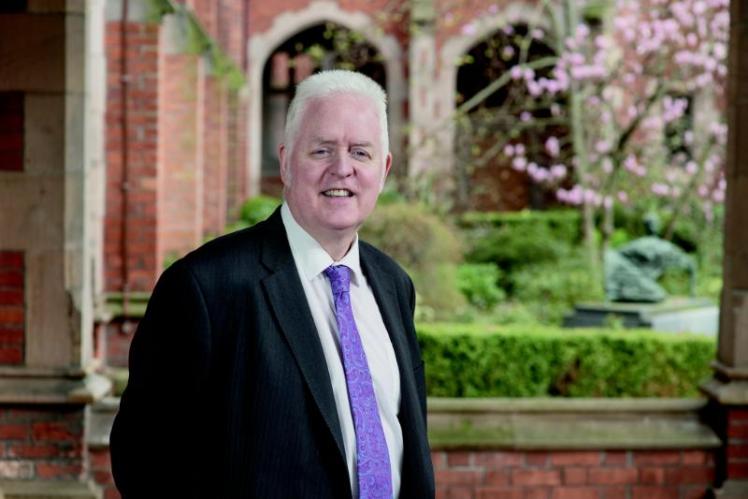
DATA-CAN, the UK’s Health Data Research Hub for Cancer, whose Scientific Director is Professor Mark Lawler, Professor of Digital Health at Queen’s University Belfast, is taking a novel approach to cancer data.
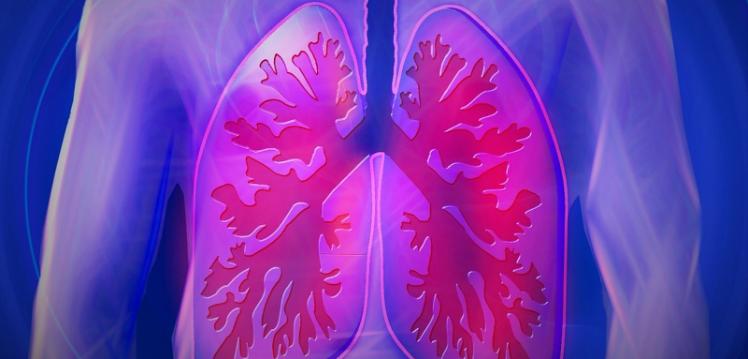
Queen’s University Belfast and University of Warwick present preliminary findings from the largest non-invasive respiratory support trial for COVID-19.

Researchers from Queen’s University Belfast are studying how people aged 50 years and older across Northern Ireland have been affected by the COVID-19 pandemic.

Researchers from Queen’s University Belfast are conducting three new research projects which will study the various factors affecting brain health as we age.
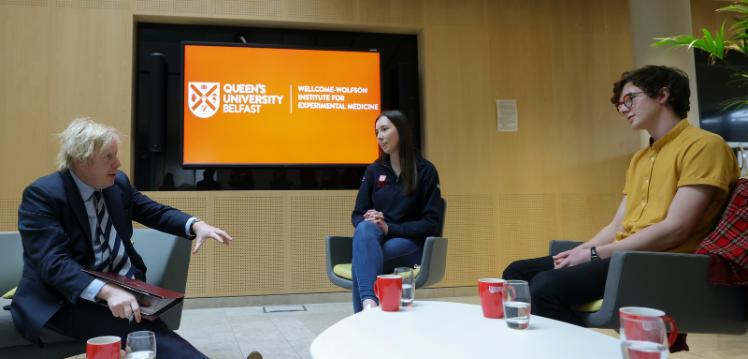
Queen’s University Belfast today (Friday 12 March) hosted a visit by Prime Minister Boris Johnson at the Wellcome-Wolfson Institute for Experimental Medicine.

The School of Medicine, Dentistry and Biomedical Sciences at Queen's has awarded the 2021 Barcroft medal to Professor Sarah Gilbert, Saïd Professor of Vaccinology at the Jenner Institute in Oxford.

Staff skilled in using supercomputers at Queen’s University Belfast are supporting top scientists to track the spread of COVID-19 and discover new variants which may help the virus to evade vaccines.
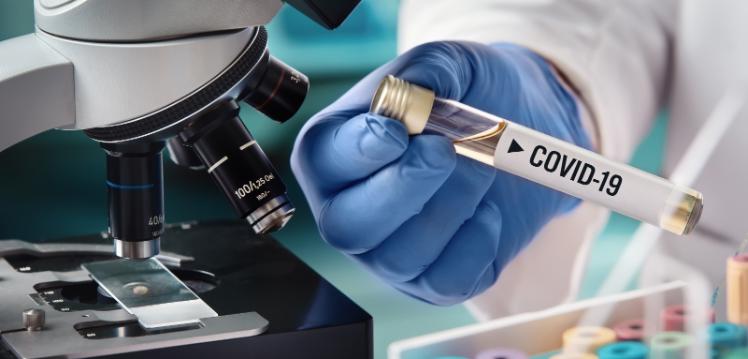
A research team from Queen’s has been awarded a £500,000 UK Research and Innovation (UKRI) Rapid Response Fund grant to investigate the role of bacterial co-infections in COVID-19, and drug repurposing for the treatment of the disease.
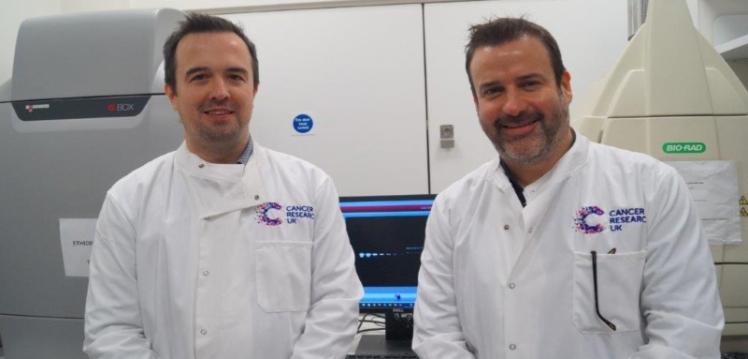
Research led by Queen’s University has found a new way through which the p53 gene, also known as the ‘Guardian of the Genome’, the most frequently mutated gene in cancer, can prevent cell death in colorectal
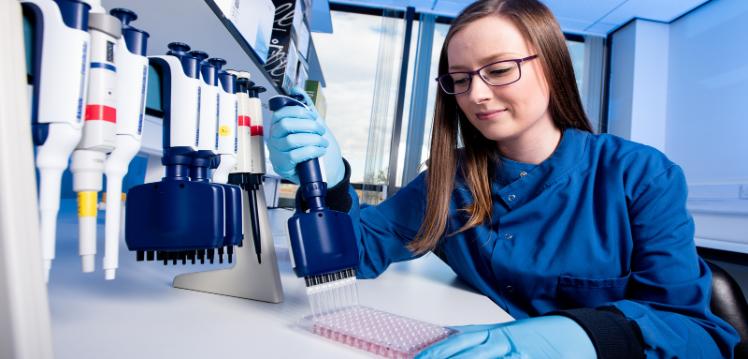
The Precision Medicine Centre of Excellence (PMC) at Queen’s is leading a ground-breaking collaboration with the world’s largest biotech company Roche, and Artificial Intelligence (AI) specialist, Sonrai Analytics.
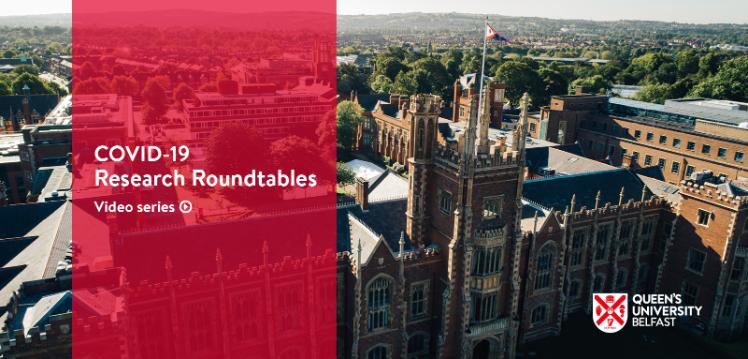
COVID-19 has had a significant impact not just in terms of the immediate effects of the disease, but across a whole spectrum of aspects of our lives.
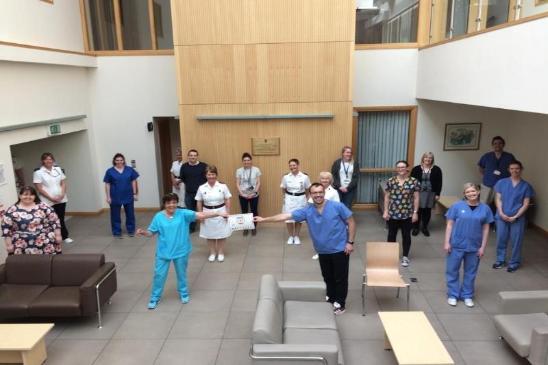
Queen’s University Belfast is leading a UK-wide trial called ‘Seroprevalence of SARS-Cov-2 infection in healthy children’ to measure antibodies to SARS-CoV-2 (COVID-19) in healthy children.
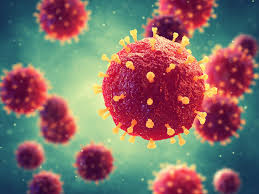
Belfast-based researchers are playing their part in groundbreaking research on the DNA make-up of the Covid-19 virus.
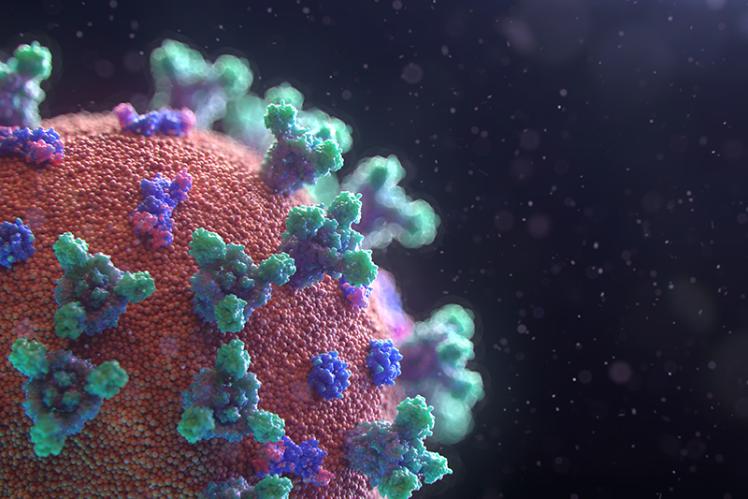
A team of researchers from Queen’s University have identified new problems linked to the disease and warn of a sharp rise in antimicrobial resistance associated to COVID-19 treatments in the aftermath of the pandemic.
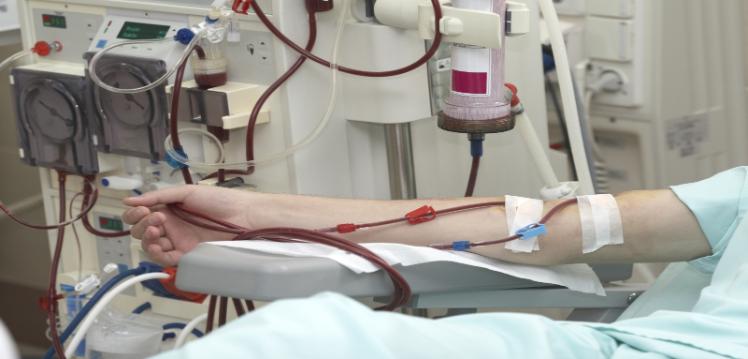
Research led by Queen’s has found that kidney transplantation is the optimum treatment for people with chronic kidney disease, improving both their quality of life and long-term survival, whilst also costing less than alternative treatments.
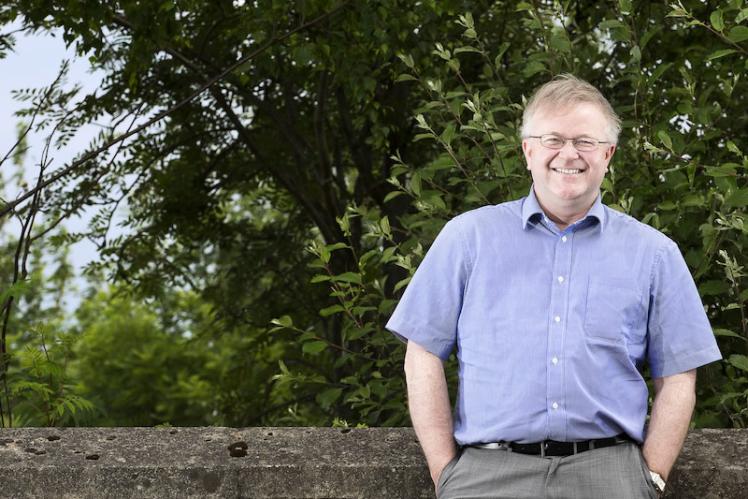
Queen’s Pro Vice-Chancellor for the Faculty of Medicine, Health and Life Sciences, Professor Stuart Elborn, is among 50 of the UK’s most prominent biomedical and health scientists elected to The Academy of Medical Sciences’ prestigious Fellowship.
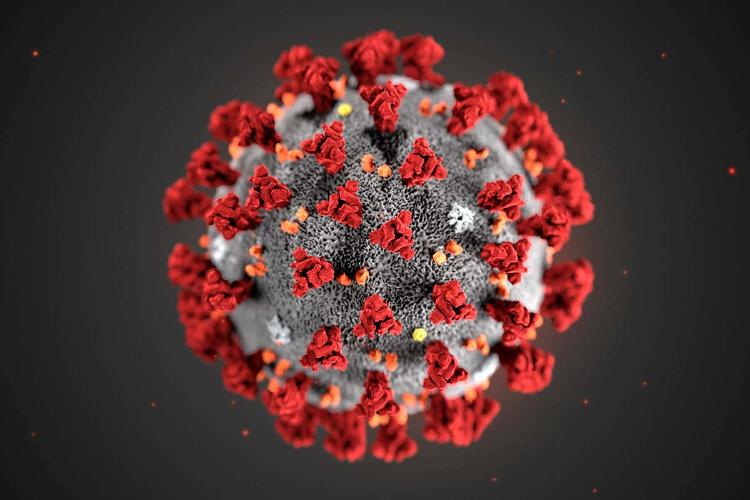
Queen’s University Belfast has received funding to conduct a trial with the aim of developing a rapid diagnostic test for COVID-19.
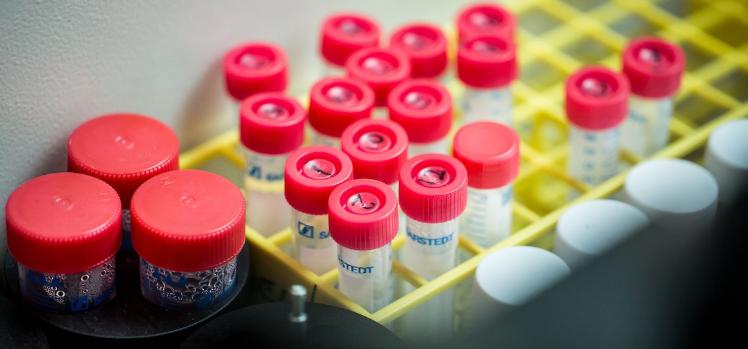
Scientists are calling on the public to sign up to a new study which will help identify who is most at risk of contracting COVID-19 and why some people become more ill than others with the disease.

For the first time, over two hundred medical students at Queen’s University recited the Sponsio Academica virtually, as they embark on their careers early in order to aid the health service during the COVID-19 pandemic.

Two researchers in the School of Medicine, Dentistry and Biomedical Sciences have been awarded Future Leaders Fellowships as part of a new investment announced by UK Research and Innovation (UKRI).

A new clinical trial led by Queen’s University Belfast and the University of Warwick seeks to find alternatives to ventilators to treat patients who are critically ill with COVID-19.
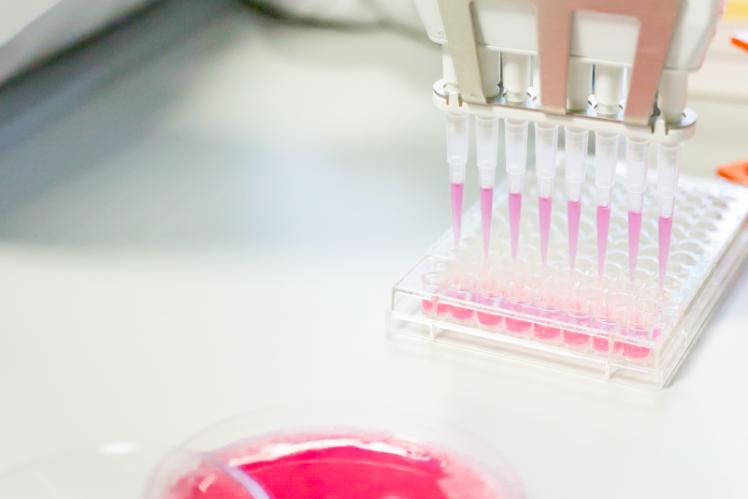
Fusion Antibodies announces that the Company is working with Queen’s as part of The Northern Ireland Coronavirus Antibody Development Alliance (“NICADA”).

Researchers at Queen’s University Belfast are leading a UK-wide clinical trial, offering an innovative cell therapy treatment for COVID-19 patients with acute respiratory failure.

Researchers at Queen’s University Belfast have been awarded a grant of £295,626 in a bid to find a treatment for COVID-19.

The Queen’s University N.Ireland Cancer Registry (NICR) today (Thursday 2 April) released the number of cancer incidence and survival statistics in Northern Ireland during 1993-2018.

New research on brain tumours could improve patient diagnosis and treatment options as part of a precision medicine approach.
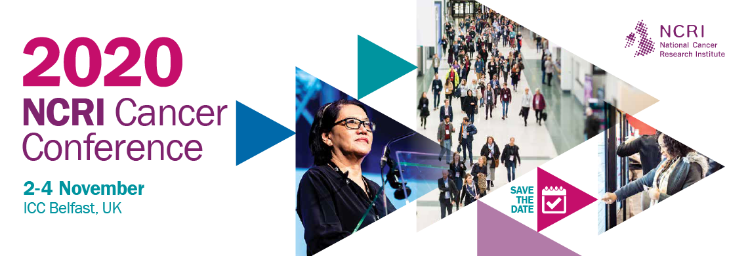
Queen’s University Belfast has a proud tradition in Cancer Research and its translation into improving the lives of our citizens, locally, nationally and internationally.
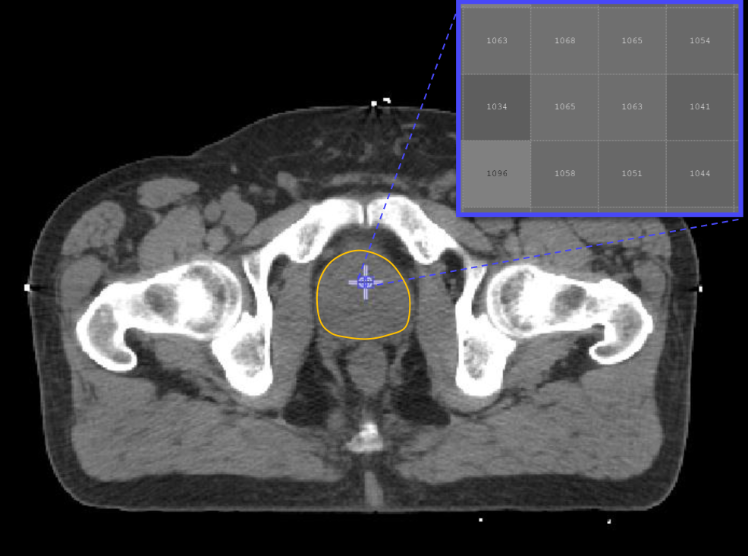
Prostate Cancer UK and Movember have awarded £1.25m to Queen’s and The University of Manchester to continue advancing treatment for prostate cancer as part of the Belfast-Manchester Centre of Excellence.

Queen’s University Belfast has a long and proud history of working with institutions and partners across the globe.
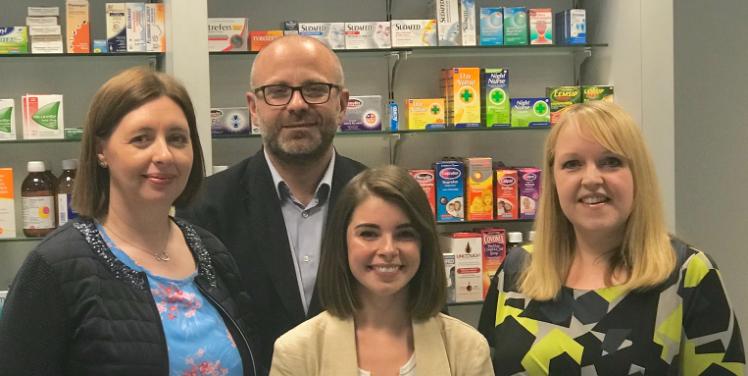
Congratulations to following staff members who have won the various awards below;
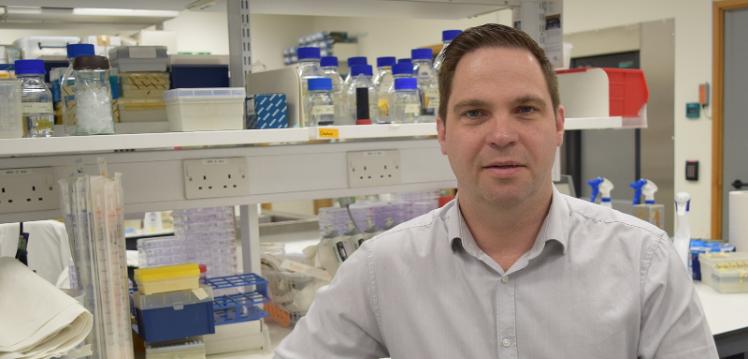
Congratulations to Dr Karl Butterworth from The Patrick G Johnston Centre for Cancer Research has won a highly prestigious international award from the Radiation Research Society in the United States.

Congratulations to Queen’s University research experts who were named in the UK’s top 25 most influential researchers who study diabetes complications.
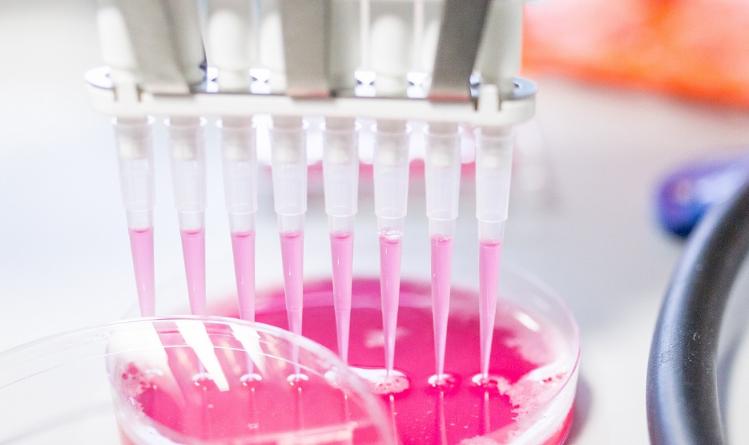
A leading scientist from Queen’s University Belfast has been awarded over £855,000 from Cancer Research UK to find new ways to prevent oesophageal cancer and improve survival rates.

Researchers at Queen’s University Belfast have discovered a new way to analyse bowel cancer tumours, which could lead to more personalised treatments and better prognosis for patients.
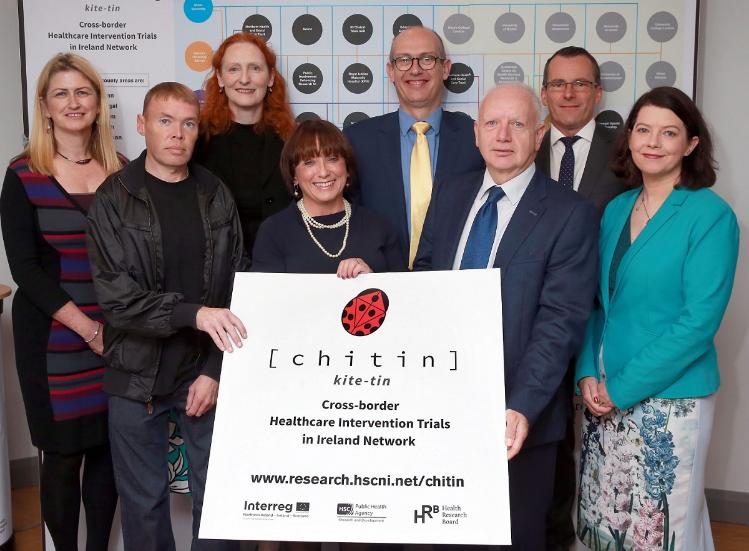
People from both sides of the border will benefit from new health and social care research trials thanks to a new Cross-Border Healthcare Intervention Trials in Ireland Network (CHITIN).

Queen’s University Belfast is delighted to announce two special events taking place in October 2018 to celebrate World Sight Day which provide a platform to promote the advancement of knowledge and treatment of diabetic eye disease and AMD.

Queen’s University Belfast will hosting AIMday Big Data, AI and the One Health Agenda on Friday 19th October 2018 at Riddel Hall, Queen’s University Belfast.
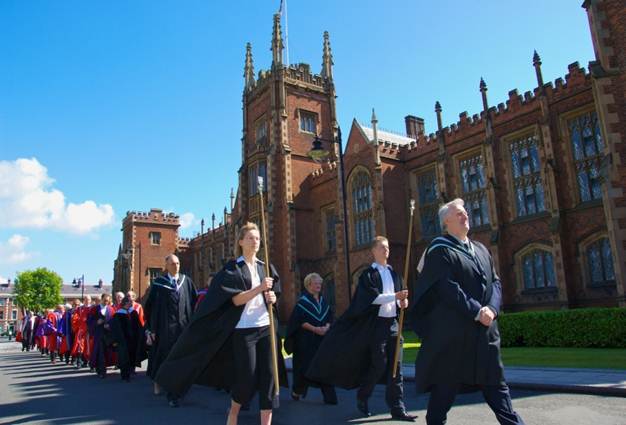
Are you graduating and have an interesting story to tell?

A groundbreaking report, led by Professor Mark Lawler, Chair in Translational Cancer Genomics at Queen’s highlights a plan to end bowel cancer, the second most common cause of cancer death in Europe.
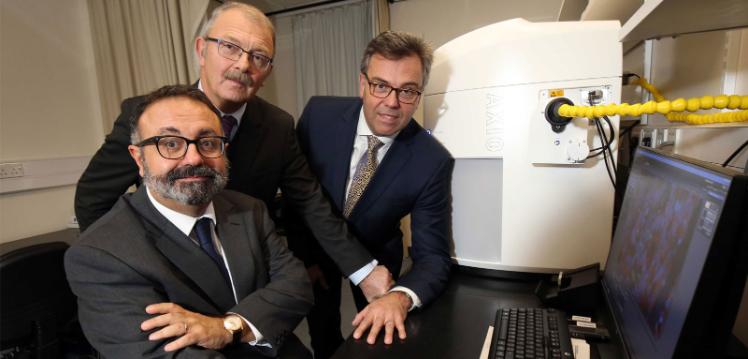
A £10million Centre of Excellence in Precision Medicine has been launched by Invest Northern Ireland and Queen’s University Belfast.

ICAT seeks to appoint 8 qualified and ambitious medical graduates who aspire to become the next generation of clinical academic leaders. Applications must be submitted by 16.00 GMT, 31 October 2017

Specialist Training Posts with Academic Training Opportunities at Queen’s University
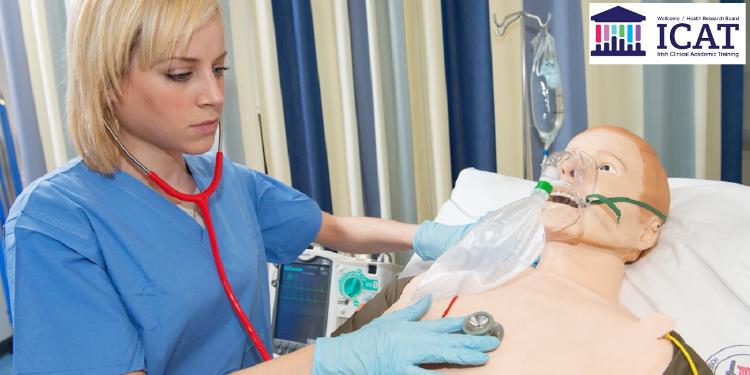
ICAT seeks to appoint the first cohort of 8 well qualified and ambitious medical graduates who aspire to become the next generation of clinical academic leaders.

Researchers from Queen’s University and the Institute of Cancer Research in London have received a grant of over £819,000 from Prostate Cancer UK to test a new potential treatment for advanced prostate cancer.

Researchers at Queen’s University Belfast have begun a £2 million research programme to investigate reversing the damage caused by Multiple Sclerosis.

An international research team, led by public health experts at Queen’s University Belfast, have conducted the first ever study into the impact of the built environment on levels of exercise and physical activity among people in India.

Researchers at Queen's University Belfast and University College London have discovered that a drug, originally developed to treat cardiovascular disease, has the potential to reduce diabetes related blindness.
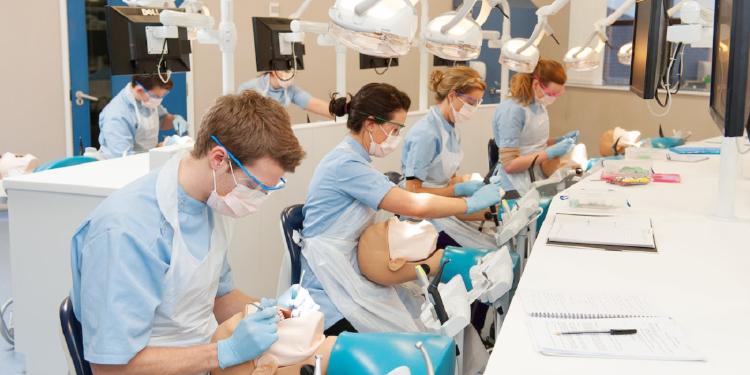
Dentistry at Queen’s University Belfast is now ranked as the top Dentistry course in the UK. The latest Guardian rankings have announced that Dentistry at Queen’s has moved to 1st place after ranking 2nd in previous years.
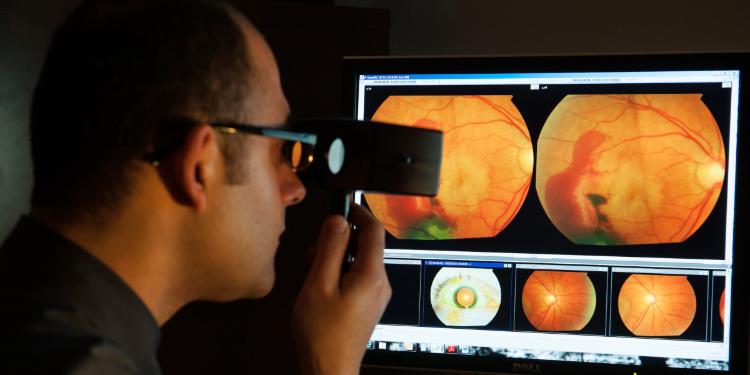
World-leading researchers from Queen’s University Belfast are among a team of scientists from the USA and Ireland who are collaborating to develop a novel treatment for diabetes-related blindness.
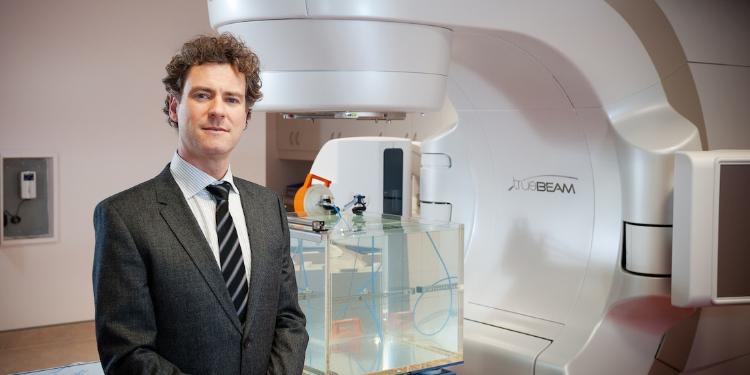
QUB in world’s first trial of new treatment for prostate cancer
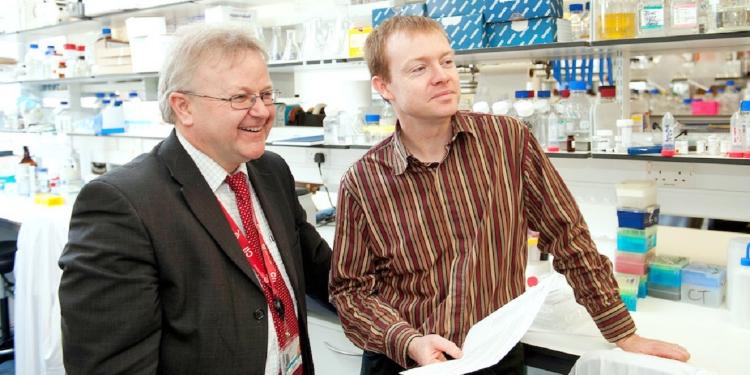
Researchers at Queen’s are leading a €50 million, Europe-wide, project to develop new drug treatments that could improve the lives of patients with cystic fibrosis and bronchiectasis.
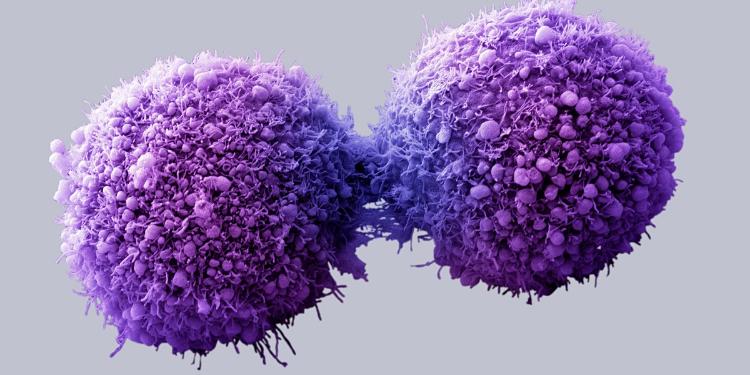
Release of the cancer incidence and survival statistics for Northern Ireland 2010-2014

